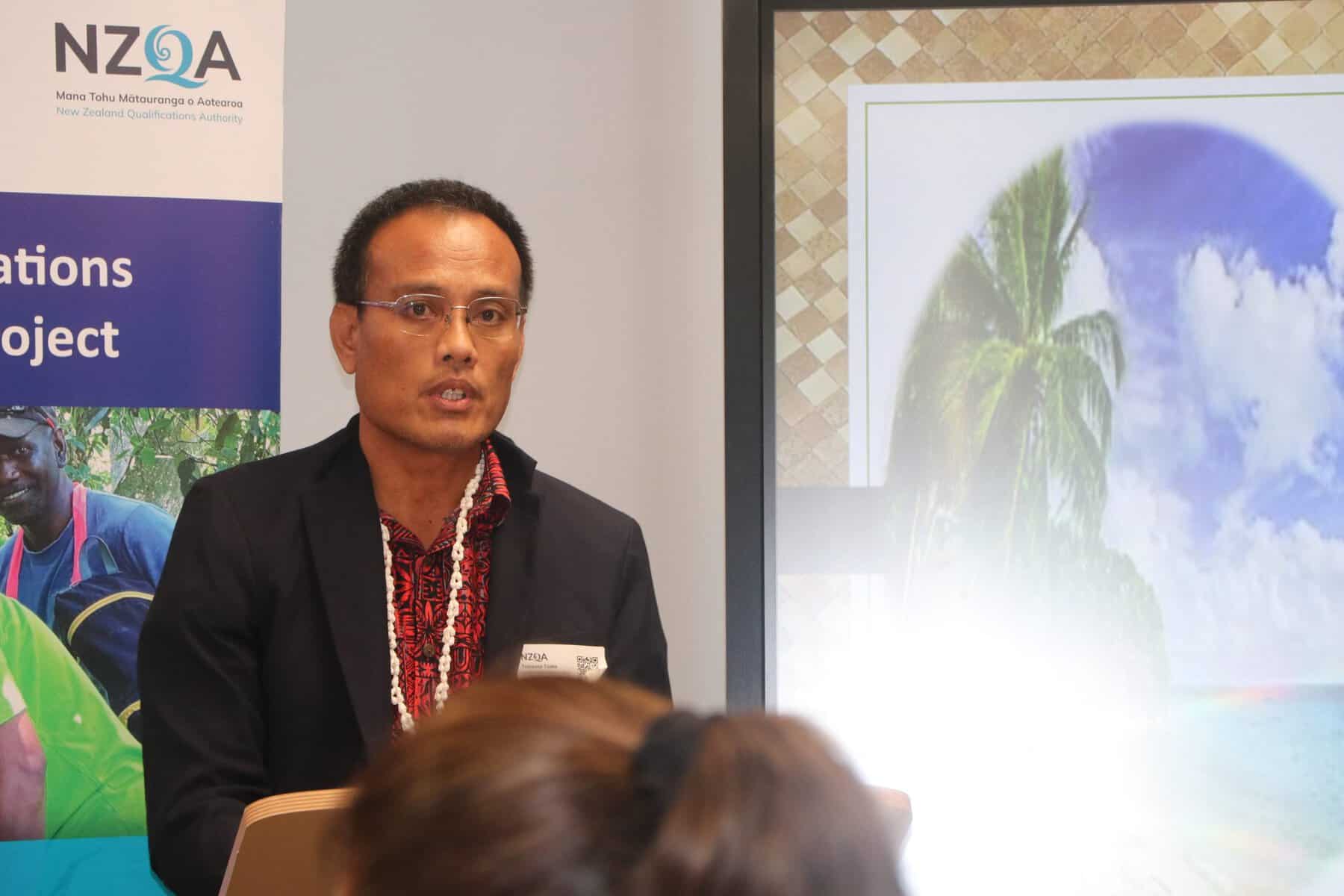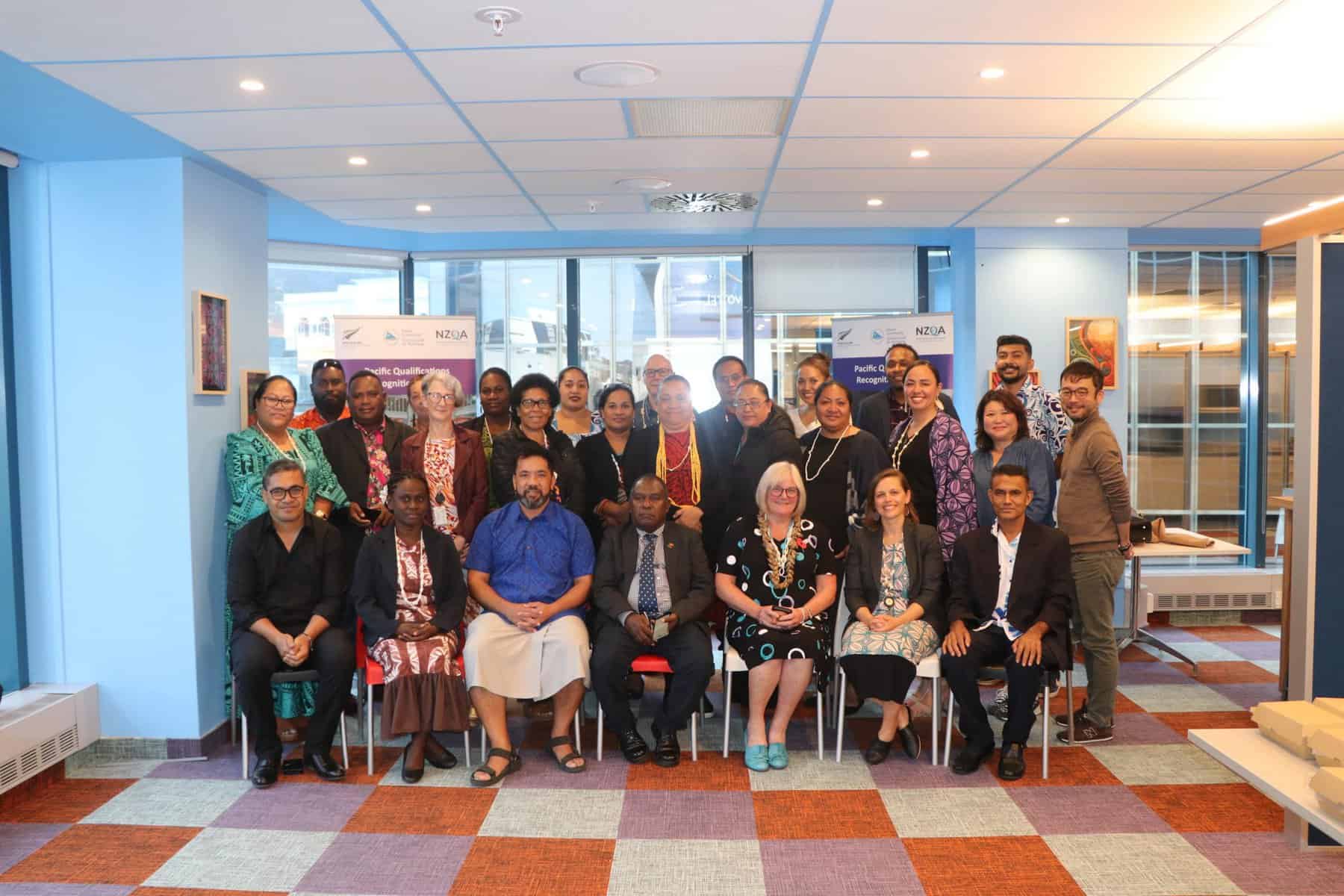Looking at the improved mobility of Pacific people across the region makes me reflect on structures and systems that allowed it to be a reality, something that was very difficult to achieve a decade ago.
Mauri, I am Toaiauea Toaba – Quality Assurance Officer at Kiribati’s Ministry of Education, and I am fortunate to represent my country in the recently launched Pacific Qualifications Recognition Project that is led by the Pacific Community (SPC) and the New Zealand Qualifications Authority (NZQA).

Movement across borders has increased due to improved formal and vocational education in the region and more specifically in Kiribati, however our Pacific People are still facing challenges in having their qualifications recognised in the countries they are aiming to migrate to.
In Kiribati’s case, to fully grasp the qualifications recognition journey of the country, we must go back in time to understand where we are headed for the next five years.
Prior to 2014, Kiribati did not have a qualifications authority that would ensure that the country not only had a quality assured set of qualifications, but also that those qualifications are accredited and recognised even outside of our borders.
This also meant that qualifications provided in the country were not consistent and comparable across the nation.
These problems rippled into generating challenges for our learners as those exiting schools had limited pathways for quality tertiary education. An equally worrying issue was that when students graduated from local institutions, their qualifications were not recognised locally or overseas and this led to an increase in unemployment rates and attainment of unsatisfactory employment for these graduates.
In 2001, the Pacific Ministers of Education, in their meeting in Brisbane, agreed to the setting up of a regional qualifications’ framework, covering basic, primary, secondary, TVET and tertiary education, benchmarked against appropriate international standards and qualifications.
The Pacific Qualifications Framework was established to support improvement of the quality of qualifications across the region, including Kiribati qualifications. The South Pacific Board for Educational Assessment (SPBEA) at that time, now known as the Pacific Community’s (SPC) Educational Quality and Assessment Programme (EQAP), was tasked by our region’s education leaders to construct a regional qualifications framework as well as help those countries who have internal capacity to develop their national frameworks.
In 2011, the Pacific Qualifications Framework (PQF) was endorsed by the region and is a structure that defines qualifications in terms of volume and complexity of learning, and illustrates the pathway to move from one qualification to the next. The PQF also describes the different types of qualifications, in terms of their relevance and applicability to the industry.
The Kiribati Ministry of Education adopted this regional framework to firstly establish an official framework at the national level and secondly, to improve our quality assurance systems. For example, through the regional framework, our ministry is able to support the Kiribati Teachers College to provide the relevant qualifications at the national level that are comparable with similar qualifications across the blue Pacific continent.
Now, after a decade of ongoing upgrades and improvements achieved through our framework, where to from here? The next five years will be a critical period for Pacific countries involved in the Pacific Qualifications Recognition Project. The 9 countries will be supported to strengthen their qualifications frameworks and systems, to improve the recognition of Pacific qualifications in other countries.
In the project, SPC and NZQA will support the countries to carry out referencing of national qualifications frameworks and qualifications systems against the Pacific Qualifications Framework. This exercise will feed into the second stage of the project that focusses on strengthening national and regional qualifications systems and frameworks. The expected improved quality and relevance of national and regional qualifications will enable Pacific people to access employment opportunities nationally and overseas.
Through the project we will have opportunities to connect with other Pacific Island countries that contribute to the development of not only the education systems, but also to our economic and social sectors and in strengthening diplomatic relationships. Kiribati, plus eight other countries that are participants in the PACER Plus trade agreement including Cook Islands, Niue, Nauru, Samoa, Solomon Islands, Tonga, Tuvalu and Vanuatu, will be working with SPC and NZQA to further uplift the quality of the region’s qualifications so they can be recognised beyond the borders of our blue Pacific continent.

About the Pacific Qualifications Recognition Project: Funded by the New Zealand Ministry of Foreign Affairs and Trade (MFAT), the Pacific Qualifications Recognition project aims to strengthen the Pacific and national qualifications frameworks and systems that will promote the recognition of qualifications, enabling the movement of learners and skilled workers across borders. The five-year project is jointly implemented by the Pacific Community (SPC) in partnership with the New Zealand Qualifications Authority (NZQA).
